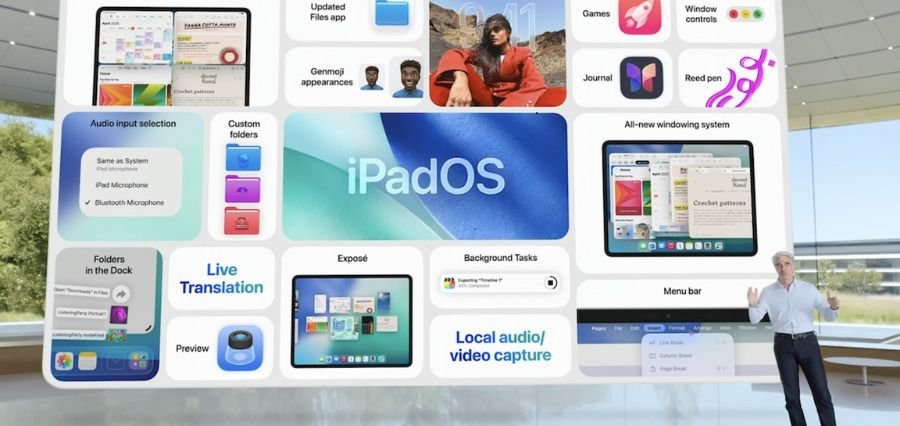Prime Highlights
- Apple introduces a new “Liquid Glass” design across all platforms for a more fluid and immersive user experience.
- The company switches to year-based OS names and expands its AI tools, but Siri’s major revamp is delayed again.
Key Facts
- “Liquid Glass” is a unified design language now integrated into iOS, iPadOS, macOS, watchOS, tvOS, and visionOS.
- Apple shifts from numbered OS versions to year-based names like iOS 26, macOS 26, etc.
- Developers can now use Apple Intelligence APIs, while Siri’s major upgrade has been postponed.
Key Background
At WWDC 2025, Apple introduced its biggest visual redesign in over a decade. The new “Liquid Glass” design language is a major shift in user interface for all Apple devices. The design is centered around transparency, depth, and silky animation, drawing inspiration from the appearance and feel of the Vision Pro headset. With the introduction of these consistent visual elements, Apple hopes to build a more unified and futuristic experience across iPhones, iPads, Macs, Watches, Apple TVs, and Vision devices.
Along with the redesign, Apple has also indicated that all of its operating systems will now be based on a year-based naming convention. This will mean that users can expect updates designated as iOS 26, macOS 26, etc., rather than the former numbered format. Apple explained that this transition provides more consistency among platforms and makes it easier for both users and developers to understand.
The keynote placed a lot of emphasis on Apple Intelligence expanding. Apple today grants developers access to a range of AI APIs that power intelligent screenshot analysis, real-time messaging and call translation, generative emoji (Genmoji), and enhanced visual search. Apple also released “Workout Buddy” on Apple Watch, an AI-powered fitness coach that provides real-time recommendations based on movement and health information. All AI capabilities focus on privacy, executing on-device or in Apple’s secure cloud environment.
However, a key disappointment for many was the delay of Siri’s long-anticipated transformation. While Apple reiterated its commitment to releasing a more powerful, intuitive version of its digital assistant, it confirmed the upgrade will not arrive this year due to the company’s focus on quality and privacy.
Overall, WWDC 2025 provided major design and usability enhancements. While several of the AI announcements were evolutionary in nature compared to revolutionary, Apple’s focus on consistency and privacy mirrors its approach to improving user experience without compromising trust. The developer beta for the new OS releases will start during July, with public releases in the autumn tied to the iPhone 17 launch.

